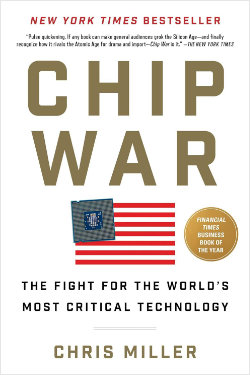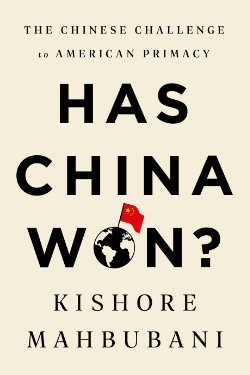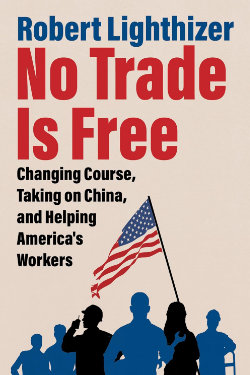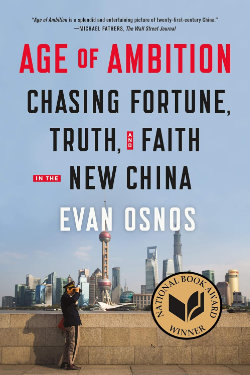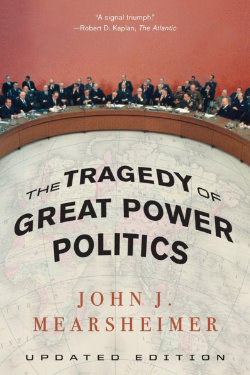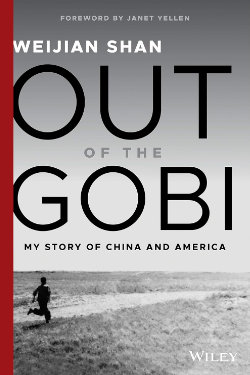Modern times do not seem to remember a time of active rivalry between powers, when each power had its own ideas about how the world should work.
Such a confrontation always means that the process of forming a new world order has begun. Politics becomes geopolitical. Everything is a forecast of future events. Reality is taken seriously. Decisions are made that will be judged by history. The future is unpredictable. Every day brings new fears and hopes.
China’s Strength
In the middle of the last century, China was not a country that commanded respect and esteem. China could inspire awe for its traditions, but it was a distant, unknown civilization. It was simply a source of goods for the West. What was overlooked was that this faraway place was not inferior. It was competing in the same race, the race in the global hierarchy.
What's changed in this country over the decades? GDP per capita in 1980: $430. In 2023: $11,800. In the 1980s: 19% of the population lived in cities. In 2021: more than 61%. In the late 1970s, 20% of the population was in high school, and 860,000 people were in universities. Today, 90% of the population is in high school, and nearly 40 million people are in Chinese universities. In 1988, China built its first highway only a dozen kilometers long. Today, China has more than 168,000 kilometers of highways, one of the world's largest road networks. Some say China's economy is in crisis. However, there is no denying that Chinese society has undergone and is undergoing changes that inspire confidence in the country's ruling elite. China's power structure is widely criticized in democratic countries. But what is the West defending?
Crisis or Twilight of the USA
In the 1950s and 1960s, the median income in the U.S. allowed a household to live on the salary of one family member. This meant that it was possible to buy a modest home, a new car, and a vacation. For many years, the U.S. has had a big problem with declining middle-class living standards and increasing social stratification. Americans are experiencing constraints on their wallets and this is a problem for the economy as a whole. The decline in the public's standard of living poses a serious threat to American power.
How can we make the American dream a reality again? The average American today can afford less, family and having children are becoming more challenging, and those who do have children must, with the limited income of their households, meet far greater expenses that come with education.The American dream looks different today. Does it look unrealistic?
As George Friedman noted, “Other superpowers such as Britain or Rome did not have the idea of a perpetually improving condition of the middle class as a core value. The United States does. If it loses that, it loses one of the pillars of its geopolitical power”. A great social idea, but has the US defined the challenges well enough?
Democracy and Liberty
American society is based on individual liberty, freedom of choice, and freedom of expression. Freedom is also important for entrepreneurship, innovation, and technology. It is the source of new ideas and inventions. But there's a misunderstanding about freedom at the intersection of business and society. Corporations are making more money, and society is getting poorer. Workers are losing their ability to develop competitive skills. The focus on making money fast has shaped the American Dream too strongly. This has helped China become a global power.
The prosperity of the American public can be a good indicator of how the American state is developing and how ideas related to state strategies are received. The difference between corporate and family incomes is causing people to lose sight of their responsibility to shape the American landscape. It seems that only large corporate gardens can bear fruit. The trees in home gardens may look healthy, but they have stopped blooming.
Americans are famous for their work ethic. But many don't feel the challenges and sacrifices that come with it. Films like “American Factory" show how the working class is struggling. The U.S. has challenges ahead that require deep, well-thought-out social and systemic programs.
China’s Rise
“Americans hold sacrosanct the ideals of freedom of speech, press, assembly, and religion and also believe that every human being is entitled to the same fundamental human rights. The Chinese believe that social needs and social harmony are more important than individual needs and rights and that the prevention of chaos and turbulence is the main goal of governance.” This is how Kishore Mahbubani sees the differences between the U.S. and China, analyzing this confrontation in the pages of his book "Has China Won? There is much to suggest that the path China is following is one of fruitful social development and has certainly contributed to the most spectacular economic development we know in the history of the modern world.
However, we must not forget that this is a country that does not share the ideas that are so characteristic of Western societies, ideas that were founded and found their strength in the development of a culture that grew up in Christian traditions. China is not a place where Westerners can fully find themselves. They would probably quickly come to the unequivocal statement that the love of harmony and patience with which we can characterize an understanding of China must at the same time assume that this harmony is not shattered by such phenomena as disregard for freedom and democracy, disrespect for individual opinions, censorship and restrictions on freedom of speech, violations of human rights and restrictions on religious freedom, including the persecution of ethnic minorities such as Tibetans and Uighurs. There is no denying that China's power has many dark sides from a Western perspective.
On the Eve of World War III
The two countries are headed for a confrontation. One could even say that this confrontation has already begun. An analysis of the military strength of the two countries is not considered here, although it is an important factor in determining their relative strength in a confrontation. Current world events even show that military power is an important part of geopolitics. This analysis has been omitted in order to make it easier to focus on the tasks that each country is facing today, tasks that characterize the essence of a country's image and that will therefore have to be solved even after the confrontation has ended, that is, after a new global equilibrium has been established. Ultimately, these tasks will always boil down to shaping the everyday lives of ordinary citizens, or in other words, they will be judged from the perspective of their daily lives.
Perhaps there will be a fierce clash between the U.S. and China to determine the eventual winner, perhaps there will be a prolonged duel, or perhaps the world will simply split into two separately developing blocs. But something in the political structure of the world will have to change, because it is clear that the world has lost its balance. We want to see who you think will be the best architect of the new global geopolitical equilibrium.



